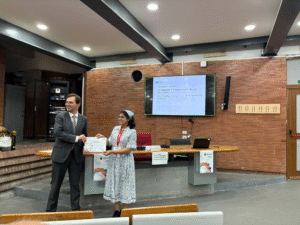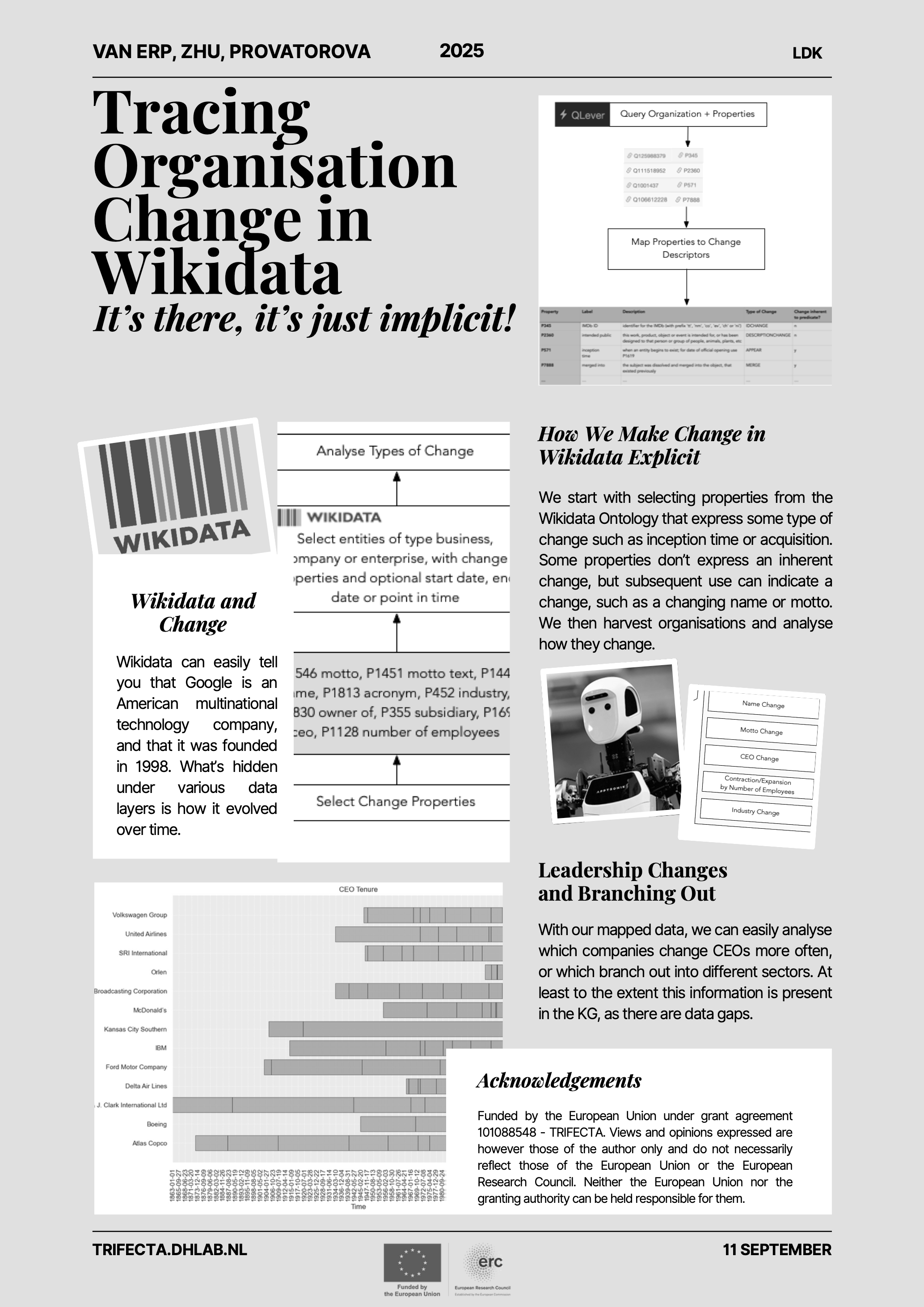In December, TRIFECTA team member Jiaqi travelled to Luxembourg to attend and present at CHR 2025, the 6th Conference on Computational Humanities Research, held from December 9-12 at the Luxembourg Centre for Contemporary and Digital History (C²DH) at the University of Luxembourg.
A Venue Where Past Meets Future
The conference took place on the University’s Belval campus. There is something poetic about discussing historical language change here, given the campus’s own remarkable transformation. Where steelworkers once tended roaring blast furnaces that helped build Europe’s railways, researchers now gather in sleek modern buildings to study the past with computational tools.

The campus sits in the heart of what was once Luxembourg’s industrial heartland. Two massive blast furnaces still tower over the site, preserved as monuments to the region’s steel-producing heritage. The university buildings have been designed to echo this history: the 85-metre Maison du Savoir deliberately mirrors the proportions of the old furnaces, while the Maison du Livre wraps around a former ore silo. Walking between sessions, you pass reflective water basins that occupy spaces where molten steel once flowed. It’s a striking reminder that transformation—whether of industrial sites or of word meanings—is a constant in human history.
Tracing How Words Change
Jiaqi presented this paper on semantic change detection in historical Dutch newspapers, exploring how computational methods can help us understand how the meanings of words evolve over time. This work is in line with TRIFECTA’s mission of developing better knowledge graphs for humanities research, as understanding how concepts shift and transform across historical periods is crucial for accurately representing historical knowledge.

Connections and Conversations
CHR has always been a warm and welcoming community for researchers working at the intersection of computation and the humanities, and this year was no exception. The conference brought together scholars working on everything from historical NLP to cultural analytics, and the conversations over coffee were just as valuable as the formal sessions. It was particularly inspiring to connect with others grappling with similar challenges around temporal analysis and historical languages.
We look forward to building on these connections and continuing to advance our research for the TRIFECTA project. We look forward to CHR2027 (the next edition) in Manchester!


